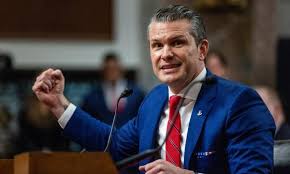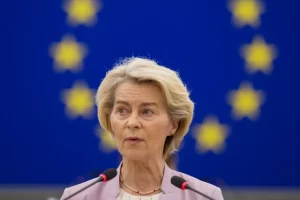Why the financial crisis at the British Council matters as UK pushes soft power

London: Something is jarring when the foreign secretary, David Lammy, regards UK soft power as so important he establishes a council to promote the country globally, while one of the longstanding British institutions devoted to bolstering that power is on the verge of a form of bankruptcy.
The financial plight of the British Council, and the collapse of its income from English language teaching during the pandemic, has hardly been hidden from view, so much so the organisation was chosen as one of the subjects of inquiry by the Commons foreign affairs select committee. The chief executive of the British Council, Scott McDonald, told MPs that the UK international cultural and educational organisation was at risk of disappearing in two years.
It may be that in times of hard power – when Donald Trump demands Nato members increase their defence spending to 5% of GDP – the 90-year-old British Council with its goal of “creating connections to build a more peaceful and prosperous world” no longer seems relevant.
And anyone listening to Trump’s threatening overture to his presidency this week would hardly think we have entered the era of soft power, famously defined by Prof Joseph Nye Jr as the ability to change the behaviour of others through attraction and persuasion. In fact, this appears to be the era of threats and sticks.
Yet the coincidence of the crisis in the British Council and the government’s establishment of the soft-power council may be a chance for Labour to examine what has gone wrong at the organisation and also look at the story Britain tells the world about itself. At issue is not only the onerous terms for the British Council to pay back an emergency £200m loan to the Foreign, Commonwealth and Development Office, or the loss of income from Europe, but the intangible value of soft power to the UK economy and growth.
A recent report from the Keir Starmer-friendly Labour Together thinktank warned the government that the nature of soft power was changing, and the UK may be slipping down the league table as rivals catch up and surpass the UK.
Written by Jonathan McClory, a globally recognised expert on the subject, the report argues that even in this era of generational security challenges, soft power still matters. Quoting Nye, he says: “It’s not just about whose army wins, but whose story wins.” However the war in Ukraine ends, there are going to be very few people saying to Russia: “That war was a great idea.”
McClory’s key argument is that for much of this century, discourse on soft power has centred on factors such as “arts, culture heritage and the consumer-facing elements of countries. Yet over the last few years there has been a marked shift towards harder-edged national attributes linked to national capabilities, scientific progress and technological prowess as the new drivers of a country’s reputation, and thus soft power.”
As a precondition for what McClory calls a “vibe shift” in the national narrative, he urges the government to “end the collective complacency around the British Council and the BBC World Service. These are two major British soft-power institutions that serve as force multipliers for the UK. They would be impossible to recreate but they are both at risk of death by a thousand cuts. The fact that emerging powers have tried to create similar institutions – with more money but far less impact – shows their importance.”
The future of these two bodies is critical, he argues, since the near universally cited chief source of British soft power is the English language, arguing it is the international language of culture, news dissemination, diplomacy, and now artificial intelligence laboratories. As a result, the UK is able to shape the global news information and cultural language. Even the rise of polarising national digital media – one of the new great threats to security – makes English even more important as a connector and mutual bond. It is precisely in these areas that the British Council seeks to operate, but often on a budget that is half the size given to comparable bodies in Germany, France and China.
Aspects of the official British national story – such as the self-aggrandising Great campaign – need revision, but the British Council – which can sometimes be crucial to whether a country flips east or west – is not one of them. One can only hope somebody realises this, and quickly.





